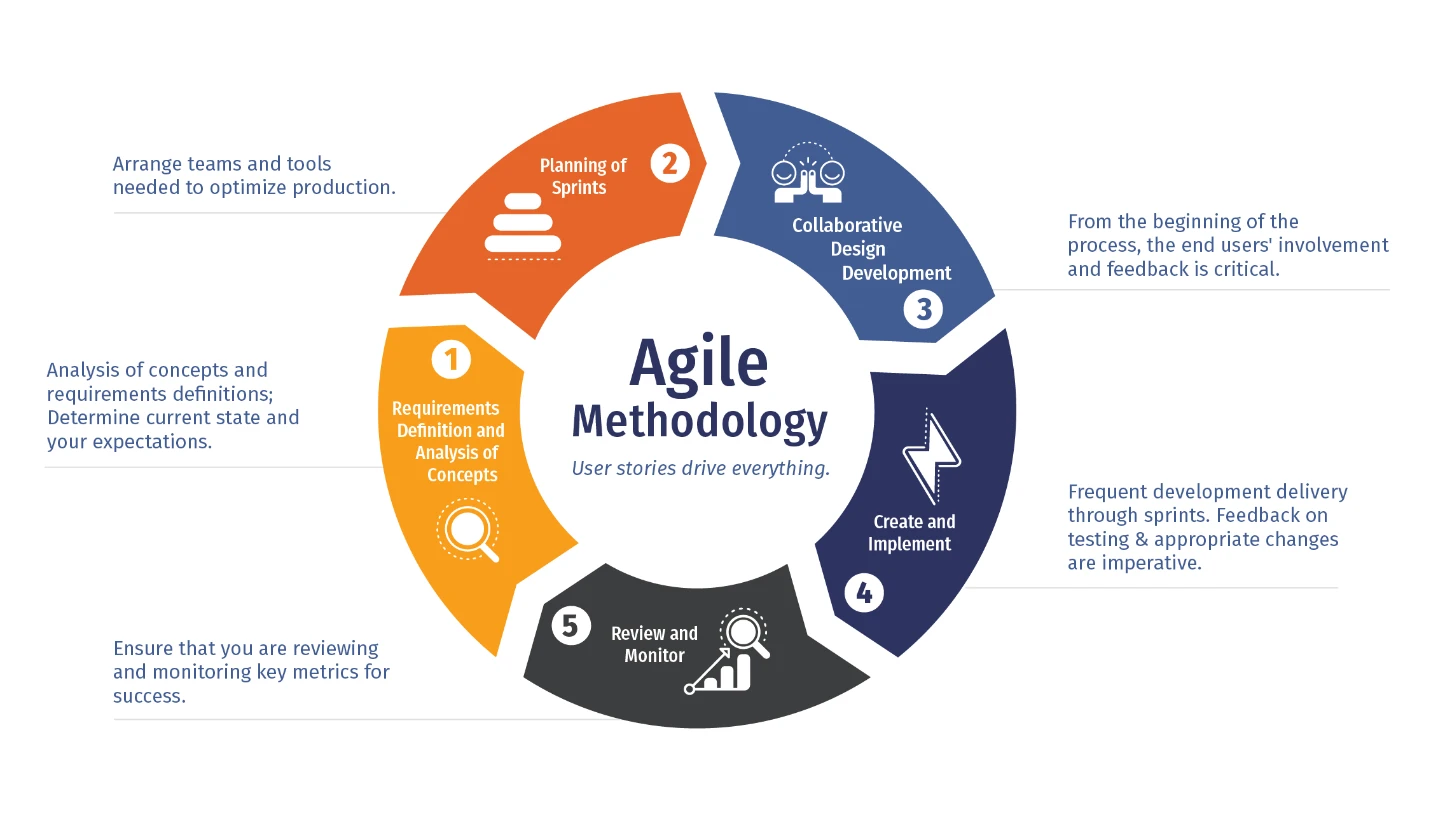Why Agile Methodology is Still Relevant in 2024
The Agile methodology, introduced over two decades ago, remains a cornerstone of software development. Its principles of flexibility, collaboration, and iterative progress have revolutionised the way teams approach projects. But in 2024, as new methodologies and tools emerge, is Agile still relevant? The answer is a resounding yes—and here’s why.
The Core Principles of Agile
At its heart, Agile focuses on delivering value incrementally, adapting to change, and fostering close collaboration. It prioritises:
• Individuals and interactions over processes and tools.
• Working software over comprehensive documentation.
• Customer collaboration over contract negotiation.
• Responding to change over following a plan.
These principles make Agile uniquely suited to dynamic environments like software development, where requirements and technologies evolve rapidly.
Agile in a Modern Context
Today, Agile has expanded far beyond its roots in software development. Companies across industries, from healthcare to finance, adopt Agile practices to manage projects and drive innovation. Frameworks like Scrum, Kanban, and SAFe have emerged, offering tailored approaches to meet specific needs.
In 2024, Agile’s relevance is evident in its ability to accommodate:
1. Remote work: Agile’s focus on communication and transparency makes it ideal for distributed teams. Tools like Trello, Jira, and Slack ensure that even remote teams stay aligned.
2. AI: Agile teams integrate AI tools to automate repetitive tasks, enabling faster iterations and more efficient workflows.
3. Customer-centric design: Agile emphasises continuous feedback, making it essential for creating user-focused solutions in today’s competitive market.
The Benefits of Staying Agile
1. Flexibility: Agile allows teams to pivot quickly in response to changing requirements or market conditions.
2. Faster Delivery: Iterative cycles ensure that working software is delivered regularly, keeping stakeholders engaged and satisfied.
3. Collaboration: Agile fosters a culture of teamwork, where developers, designers, and stakeholders work closely to achieve shared goals.
4. Quality: Continuous testing and feedback loops identify and address issues early, resulting in more robust software.

Challenges Agile Teams Face Today
While Agile remains powerful, it’s not without challenges. Common issues include:
• Misalignment: Teams may struggle to fully embrace Agile principles, leading to a fragmented approach.
• Scaling: Large organisations may find it difficult to implement Agile across multiple teams.
• Overdocumentation: Ironically, some Agile teams end up over-documenting processes, defeating the methodology’s purpose.
To overcome these challenges, organisations must invest in proper training, ensure leadership buy-in, and adopt tools that facilitate Agile workflows.
Why Agile is Core to DevRoom
At DevRoom, Agile isn’t just a methodology—it’s part of our DNA. We use Agile principles to keep our team aligned, deliver high-quality software, and adapt to the unique needs of every client. By focusing on collaboration, transparency, and continuous improvement, we’ve created a culture where innovation thrives.
Conclusion
In 2024, Agile methodology remains as relevant as ever. Its adaptability, focus on collaboration, and iterative approach make it indispensable in a world where technology and user needs evolve at lightning speed. For teams that embrace its principles, Agile offers a framework for success—not just in software development, but in any environment that values innovation and flexibility.
Whether you’re a developer, a project manager, or a product owner, staying Agile is key to thriving in today’s dynamic landscape.
